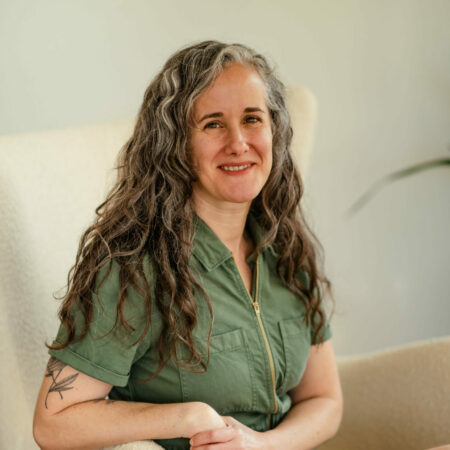The field of yoga therapy has been around for a while, but until recently, was mostly known only to yoga practitioners. In recent years, yoga therapy has been showing up more within the medical community as an alternative option for managing issues such as chronic pain, in recovery circles, and as a way of supporting individuals undergoing cancer treatment, as well as those who have finished with physical therapy, but need a bridging modality to help them continue toward their goals. The International Association Of Yoga Therapists (IAYT) has been working hard to bring the modality to the larger population, so you may start to find yoga therapists showing up in more hospitals and treatment centers in the near future.
So what is yoga therapy?
Perhaps you’ve attended a yoga class at a yoga studio or gym, or even seen classes taking place in the park on a nice day. While yoga therapy can involve yoga postures, it goes deeper than simply stretching.
Yoga therapy is a Complementary Alternative Medicine (CAM) and is the process of empowering individuals to progress toward improved health and well-being through the application of the teachings and practices of yoga. This may include practices such as postural yoga (downward facing dog, anyone?), meditation, breath practices, and other things you might find in a typical yoga class. The official definition by the IAYT for yoga therapy states:
“Yoga therapy is defined as the professional application of the principles and practices of yoga to promote health and well-being within a therapeutic relationship that includes personalized assessment, goal setting, lifestyle management, and yoga practices for individuals or small groups.”
Because we are all unique individuals, a yoga therapy session may look very different from one person to another. Essentially however, yoga therapy takes the stance that each human is made up of 5 different layers of being, and all these layers come into play when addressing a healing journey, whether it be physical or mental.
The layers of the body are broken down into:
The Physical Body
This layer encompasses musculoskeletal issues, physical illnesses (cancer, diabetes, injury, etc.), and may incorporate postural yoga, i.e., the poses we are familiar with encountering in a yoga class setting, along with somatic movements.
The Breath Body
This layer contains both the physical act of breathing and the energy of a person; this is known as prana in Sanskrit and refers to the act of breathing and also the life force of an individual. Addressing this layer may incorporate breathing practices, practices to help with sleep, and practices to raise or lower energy levels.
The Mind Body
This layer is made up of our emotions and thoughts. Part of the yoga therapy process is cultivating awareness of emotions/thoughts that may arise when focusing on a particular physical sensation or breathing practice. It also may involve noticing physical sensations that may arise when focusing on a difficult emotion or ruminating thought.
The Wisdom or the Awareness Body
This layer involves connecting to our individual presence, how we perceive the world, and that “gut feeling” or knowing. It also involves our beliefs or stories we may tell ourselves, such as “I am in pain; it will always be this way” or “I’ll never be happy or find joy”. Yoga therapy uses mindfulness and meditation practices to help reframe and untangle stories or belief patterns that may no longer be serving us. In addition, often the stories we repeat to ourselves have physical patterns in the body, much like emotions and thoughts.
The Body Of Joy or Connection To Joy
This layer involves how we connect to a greater purpose and contentment, whether we term that as god, the universe, or simply what brings one meaning and purpose in life. This layer is often the most difficult to connect to initially but is a key component of a yoga therapy plan of care. It is about connecting to pleasure, equanimity, and eudaimonic well-being.
Eudaimonia is a Greek word that often gets oversimplified as “happiness”. To break the word down, eu – good, diamon – soul or self, so in the literal translation, eudaimonia means “good self”. A better way of considering eudaimonia is achieving the best possible state of being for a human in every sense–leading a meaningful life and fulfilling one’s unique purpose, big or small. Eudaimonic happiness is similar to contentment in that it does not depend on the current situation or event. It is a steady, enduring form of happiness that is built on knowing one’s purpose.
Yoga therapy enacts a process to help clients reconnect with meaning and unchanging awareness with its attributes of eudaimonic well-being, equanimity, and contentment regardless of their circumstances. Within yoga therapy, we cultivate the awareness that we contain all things at all times. Consider someone who is dealing with generalized anxiety. Yoga therapy will use tools specific to that person to regulate the autonomic nervous system (usually involving the parasympathetic nervous system [the “rest and digest” response] stimulation and downregulation of the sympathetic nervous system [the “fight or flight” response]) and create a sense of calm. Building on that sense of calm, then planting the concept that the individual always has the sense of calm and ease within, an “inner resource”. So even amid anxiety, a person holds the capacity to be calm and at ease.
Even though these layers may appear to be separate, they flow in and out of one another, affecting our balance, supporting us sometimes, and destabilizing us in others. An individual who is only living out of one layer of being may experience symptoms related to other layers that are often unexplained. Connecting to oneself on all layers of being can shed light on places where we may describe feeling stuck in the progress toward well-being.
If you feel that yoga therapy might be a good fit to support your healing journey, please reach out for a consultation. We would love to answer any questions you might have.


